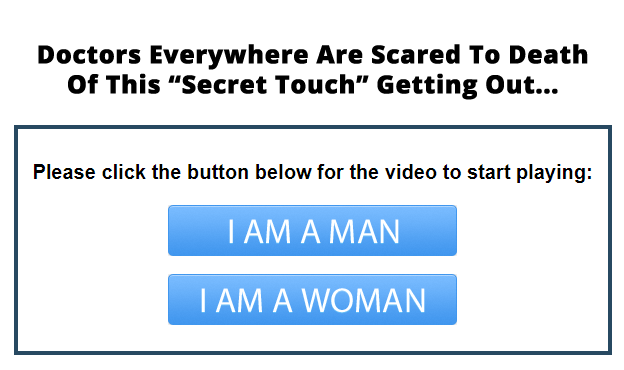Reiki is a Japanese technique for stress reduction and relaxation that also promotes healing. It is administered by "laying on hands" and is based on the idea that an unseen "life force energy" flows through us and is what causes us to be alive. If one's "life force energy" is low, then we are more likely to get sick or feel stress, and if it is high, we are more capable of being happy and healthy.
The word Reiki is made of two Japanese words - Rei which means "God's Wisdom or the Higher Power" and Ki which is "life force energy". So Reiki is actually "spiritually guided life force energy."
A treatment feels like a wonderful glowing radiance that flows through and around you. Reiki treats the whole person including body, emotions, mind and spirit creating many beneficial effects that include relaxation and feelings of peace, security and wellbeing. Many have reported miraculous results.
Reiki is a simple, natural and safe method of spiritual healing and self-improvement that everyone can use. It has been effective in helping virtually every known illness and malady and always creates a beneficial effect. It also works in conjunction with all other medical or therapeutic techniques to relieve side effects and promote recovery.
An amazingly simple technique to learn, the ability to use Reiki is not taught in the usual sense, but is transferred to the student during a Reiki class. This ability is passed on during an "attunement" given by a Reiki master and allows the student to tap into an unlimited supply of "life force energy" to improve one's health and enhance the quality of life.
Its use is not dependent on one's intellectual capacity or spiritual development and therefore is available to everyone. It has been successfully taught to thousands of people of all ages and backgrounds.
While Reiki is spiritual in nature, it is not a religion. It has no dogma, and there is nothing you must believe in order to learn and use Reiki. In fact, Reiki is not dependent on belief at all and will work whether you believe in it or not. Because Reiki comes from God, many people find that using Reiki puts them more in touch with the experience of their religion rather than having only an intellectual concept of it.
How This Type of Energy Healing Works, and Its Health Benefits
Reiki practice may help with a variety of physical and emotional problems, including insomnia, stress, depression, anxiety, and pain.
Reiki may also improve mood and sleep: A past study found that college students who received six 30-minute Reiki sessions reported greater improvements in stress, mood, and sleep (especially those with higher anxiety and depression), compared with the control group.
Other research suggests that Reiki and other forms of energy therapy may help patients with cancer improve pain control and anxiety levels, notes Cancer Research UK.
For example, past research shows that a single Reiki session may help your autonomic nervous system, the primitive part of your nervous system that you don’t fully, consciously control (it's responsible for things like heartbeat and breathing), move from a sympathetic-dominant, or “fight-or-flight” state, to a parasympathetic-dominant, or “rest-and-digest” state, Miles explains.
Your brain is constantly processing information in a region called the hypothalamus, which then sends signals through your autonomic nervous system to the rest of your body to either stimulate or relax different functions, such as heart rate, blood pressure, breathing, and digestion, according to Harvard Health.
When you experience stressors like poor sleep, a confrontation with a friend, or even exercise, your sympathetic nervous system reacts, releasing hormones like epinephrine, among others, and increasing heart rate and blood pressure (the fight-or-flight response that gets the body ready to deal with potential dangers). But when your body is constantly under stress (or is activated by prior more severe stressful experiences, such as trauma and resultant PTSD), this response can shift into overdrive, which can lead to problems like greater risk of heart disease.
In a past study, 21 healthcare professionals with burnout (a work-related mental health condition characterized by mental exhaustion, emotional detachment, and a lowered sense of personal accomplishment) received a 30-minute Reiki session with an experienced therapist, as well as a 30-minute placebo treatment with an inexperienced therapist who mimicked the Reiki treatment. The two treatments were separated by one week; participants were randomly assigned their treatment order, and they weren’t told which treatment they were getting during which session.
A low score indicates there’s little variability between heartbeats, signaling that the sympathetic, or fight-or-flight, component of your nervous system may be working overtime, and your stress level is high. Meanwhile, a high score means greater variability in between your heartbeats, and that the parasympathetic, or rest-and-digest, component of your nervous system has kicked into higher gear.
A main benefit of Reiki (which leads to a lot of other benefits) is stress reduction, Miles explains. “Our bodies cannot heal when they’re in a stressed state all the time.”
Reiki gives your body a break from the stresses of daily life, helping you return to a state of relaxation. Once in this state, your body is [potentially better] able to heal any damage brought on by stress, injury, or disease. “By helping a person experience deep relaxation, Reiki enhances and accelerates our own natural healing process, because the body can stop being stressed and focus on healing itself,” Maute says.
“The parasympathetic-dominant state is the state we are meant to live in,” Miles says. And Reiki helps to support one’s autonomic nervous system toward that state of safety, rest, recovery, and ease.
Researchers measured heart rate variability, or the variation in time between each heartbeat, to gauge how the nervous system responded to the therapy.
Researchers found that heart rate variability was greater following the Reiki session, which suggests (using a very quantifiable physiological measurement) that Reiki may help a stressed nervous system relax.
Keep in mind that Reiki is a form of complementary therapy per the NCCIH, which means that it is intended to work alongside — not in place of — other medical and therapeutic techniques. “Because Reiki is so balancing to the system overall, it can potentially benefit any situation,” Miles says — but should not be used as a substitute for other treatments your healthcare providers have prescribed.


